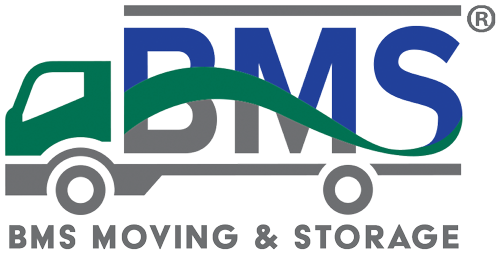Packing everything you own seems logical until you realize some items can land you in legal trouble, create safety hazards, or simply waste valuable moving truck space. Professional movers have seen it all, from illegal fireworks to forgotten propane tanks, and they’ll refuse to transport these items for good reason.
Hazardous Materials That Can’t Go on the Truck
Moving companies follow strict federal regulations about hazardous materials. These items pose fire risks, can leak or explode under pressure, or create toxic fumes in enclosed spaces.
Common household hazards include:
- Paint, paint thinner, and varnish
- Propane tanks and gas canisters
- Gasoline, kerosene, and motor oil
- Pesticides and weed killer
- Pool chemicals and chlorine
- Household cleaners with bleach or ammonia
- Nail polish remover and aerosol cans
- Fire extinguishers and oxygen tanks
- Car batteries and lighter fluid
That camping stove propane tank from last summer? Transport it yourself or dispose of it properly. The same goes for that half-empty paint can in the garage. Moving trucks experience temperature extremes and vibration that can turn these everyday items into serious hazards.
Perishable Foods and Plants
Your refrigerator and pantry need strategic planning before moving day. Professional movers won’t transport perishables because they attract pests and create messes when they spoil or leak.
Start using up frozen foods about a month before moving. Plan meals around clearing out your pantry. Donate unopened non-perishables to food banks at least a week before moving. Use coolers for any food you’re transporting yourself on moving day.
Plants create their own challenges. Many states have agricultural restrictions on transporting plants across state lines to prevent spreading pests and diseases. Even within the same state, plants rarely survive long truck rides. Temperature changes, lack of light, and vibration stress them beyond recovery. Gift plants to friends or take cuttings to propagate at your new home instead.
Valuables and Irreplaceable Items
Some belongings shouldn’t go on the moving truck because they’re too valuable or irreplaceable. Pack these items separately and transport them yourself:
- Cash, checkbooks, and credit cards
- Jewelry and watches
- Important documents (birth certificates, passports, deeds, wills)
- Medical records and prescription medications
- Laptops, tablets, and external hard drives
- Family photos and heirlooms
- Collections (coins, stamps, baseball cards)
Create a “moving day essentials” box for these valuables. Keep it with you during the entire move. Back up digital files before moving day, and consider using a safety deposit box for items you won’t need immediately.
Weapons and Ammunition
Firearms and ammunition have specific transport regulations that vary by state. Moving companies typically refuse to transport them due to liability concerns. Research laws for every state you’ll pass through during your move.
If you own firearms:
- Check regulations for your current state and destination
- Verify requirements for any states you’ll drive through
- Consider shipping through a licensed firearms dealer
- Transport ammunition separately from firearms
- Lock firearms in cases during transport
Some states require permits for certain knives, pepper spray, and other self-defense items. Don’t assume what’s legal in your current location will be legal at your destination.
Items That Belong to Someone Else
This sounds obvious, but borrowed and rented items cause moving day headaches. Return everything before moving day:
- Library books and DVDs
- Borrowed tools or equipment
- Rental furniture or appliances
- Work equipment or files
- Dry cleaning still at the shop
- Items in storage units you’re abandoning
Create a returns checklist two weeks before moving. Include contact information for each item’s owner. Some people discover borrowed items while packing and scramble to return them during moving week chaos.
Sentimental Items Requiring Special Care
Certain sentimental items need personal attention during moves. While not prohibited, these belongings deserve special handling:
Wedding dresses need acid-free boxes and climate control. Old photographs stick together in heat and humidity. Antique books can suffer spine damage from improper packing. Musical instruments require specific temperature and humidity ranges.
Consider shipping valuable antiques through specialty carriers with extra insurance. Transport family heirlooms yourself when possible. Document everything with photos before packing for insurance purposes.
Practical Pre-Move Disposal Tips
Start sorting three months before moving. Create four categories: move, sell, donate, and dispose. Be ruthless about items you haven’t used in the past year.
Schedule hazardous waste disposal through your local municipality. Many areas offer free collection days for paint, chemicals, and electronics. Don’t wait until the week before moving when these services might be booked.
Host a garage sale six weeks before moving. Price items to sell, not to profit. Whatever doesn’t sell goes to donation centers immediately. Take photos of donated items for tax deduction documentation.
Research disposal requirements at your destination. Some cities have strict rules about mattress disposal or electronic waste. Factor disposal costs and logistics into your moving timeline.
The Week Before Moving
Conduct a final sweep for prohibited items:
- Check garage rafters and basement corners
- Look under sinks for forgotten chemicals
- Empty outdoor sheds completely
- Clear medicine cabinets
- Check fireplace for ashes
- Remove batteries from remotes and toys
Use up or properly dispose of:
- Frozen food
- Alcohol (regulations vary by state)
- Grilling charcoal and lighter fluid
- Fertilizer and plant food
- Open toiletries that might leak
Working With Your Moving Company
Professional movers like BMS Moving & Storage provide detailed lists of prohibited items during your consultation. Ask questions about anything unclear. They want your move to go smoothly and will help you understand regulations.
Be honest about what you need to move. If you hide prohibited items and movers discover them on moving day, they’ll refuse to load them. This creates delays and additional costs. Some items might be transported under special circumstances with proper preparation and documentation.
Moving offers a perfect opportunity to declutter your life. Those half-empty paint cans and expired medications needed disposal anyway. Focus on transporting what truly matters to your new home. The items you can’t pack often turn out to be things you didn’t need to keep.




